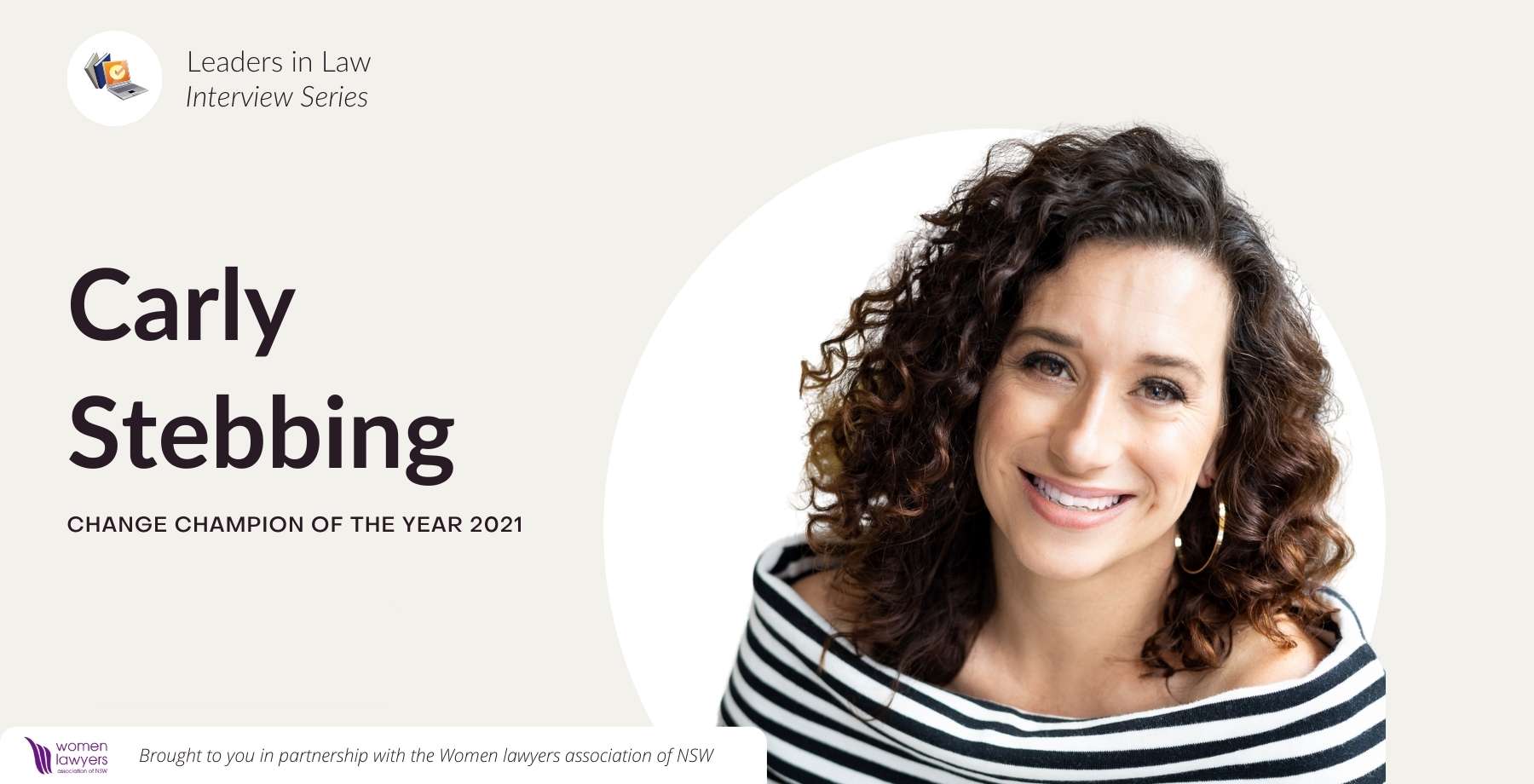Leaders in Law Interview Series: Lisanne Iriks
Posted on Jun 14, 2021

Lisanne Iriks is an award-winning family dispute resolution practitioner and has been recognised as a leader in mediation and conflict resolution in Australasia. Lisanne provides family, workplace and commercial mediation through her role as Director of Life Mediation. She also provides training and coaching in mediation skills and techniques, conflict resolution, communication and negotiation.
We spoke with Lisanne about her journey to become a conflict resolution expert. She also shared how her approach to mediation and negotiation can help lawyers become stronger negotiators.
Your journey in law started in your country of origin, the Netherlands. Can you tell us a little bit about your journey from then to where you are today?
I moved here because my husband is from Australia. We met while I was traveling - basically the good old backpacker story. We first lived in Holland for a little while and in 2008 we moved back to Australia.
I loved studying law and I'd been qualified as a lawyer before moving to Australia. In the Netherlands I worked at a commercial law firm - which I really enjoyed - but it also became clear to me that it was probably not my path to become a lawyer. I loved spending time with clients, talking to them, and resolving issues through communication. Due diligence, writing, and drafting contracts were not making me very happy. So I decided to study counseling.
When I moved to Australia, it was difficult to get a job - I got a lot of no's. Eventually, I managed to get a job as a Personal Assistant (PA) for a CEO. This was not what I was looking for at all but I was happy to take any job at this point and it turned out to be amazing. I learned so much! While working there, I started to think more about how I could combine the skills I already had with my passion for communicating and resolving issues. That's how I landed on mediation. I got my degree from the Netherlands recognised and did all the necessary qualifications to be able to become an accredited mediator in Australia.
I loved studying law....but it also became clear to me while I was working in the field that it was probably not my path to have a career as a lawyer.
I secured a job in the department of corrective services as a mediation officer in Perth after knocking on lots of doors in the city. In this role, I learned a lot of skills relating to mediation and the court system in Australia. I fell pregnant with my first child during this time, and I think that contributed to my interest and commitment to resolving conflicts within families - which led me to complete a Family Law Dispute Resolution Practitioner course. Since then, I have worked for non-for-profits such as Anglicare and Relationships Australia and in 2011 I decided to open my practice, Life Mediation.
I started my practice because I wanted to do things my way, and from my perspective, provide the service I thought was the best for my clients. My practice evolved and along the way, I realised I wanted to contribute to change in the legal profession. I wanted to help future lawyers negotiate better and become great mediators - even if they're not becoming full-time mediators. I started to reach out to universities and I secured a lecturing role at Murdoch University in 2015. Besides my lecture role at Murdoch University, I now teach at Edith Cowan University and The College of Law as well. It is so great as my practise as a mediator informs my practise and my teaching informs my practise. Through my mediation practice, I offer workplace mediation, family law mediation, and I also train corporate clients in communication, negotiation, and conflict resolution.
During the pandemic, I started my podcast Conversations to Cut the Conflict. I wanted to do something for people and give people access to free content that would be useful especially while being in lockdown. A lot of people were struggling with being on top of each other and life had to be renegotiated completely. On this podcast I interview many amazing guests and I hope to give my listeners the tools to switch on their inner conflict resolution and negotiation muscles, resolve conflict effectively and create strong relationships.
You have had a long career in mediation, negotiation, and dispute resolution. You've also been recognised several times for your contributions to the area. Where does your passion for conflict resolution come from?
My passion comes from seeing what conflict does to people. The suffering it causes, and the negative impact it can have on a person's mental health and happiness if not resolved. A lot of conflict is unnecessary and can be resolved quite easily if people are willing and are able to see what the impact is of not resolving it.
I want to help people and give them the tools to feel like they can express themselves, build strong relationships, feel confident and resolve conflicts with the people around them easily and quickly.
Giving parents the skills to effectively resolve conflict can make a very big difference for their children.
I am especially passionate about conflict resolution in the family law space where children are involved. Giving parents the skills to effectively resolve conflict can make a very big difference for their children. The children won't have to grow up being surrounded by conflicts, which can make a huge difference to their future. Growing up with entrenched conflict between the parents can impact children’s mental health, future relationships and the way they learn how to interact with other people to name a few issues.
A lot of people shy away from conflict but you’ve often expressed that conflict can be positive. Can you tell us more about your perspective on this?
I think conflict can be amazing - if it's managed well. The negative aspects we associate with conflict often occur when a conflict is managed poorly. In my training, I often ask people what they think of the word “conflict”. Usually, people have a negative view of the word. People associate it with pain, anxiety, shouting and other negative aspects. But when you think about it, conflict can lead to positive change.
I think conflict creates a huge amount of value in business and relationships as long as it's managed well.
The good thing about conflict is that it creates change because what is no longer working is being discussed instead of it bubbling under the surface. When you know what the problem is you can problem solve, innovate and communicate about it which is all very positive. Think about Martin Luther King for example. He took a stand and highlighted something that was not working in society. People who like the status quo did not like that he made a stand which caused conflict. This stimulated communication, and innovation and eventually it was a catalyst for positive change.
I think conflict creates a huge amount of value in business and relationships as long as it's managed well and doesn't escalate to a point where people say things they shouldn't say, or are abusive towards each other. In my 8-week online program "Confident with Conflict" I help people to be confident with conflict and have the skills to manage conflict well so they can create positive outcomes in their conversations and create a life they love. Often people think that negotiation is not for them, but everyone negotiates every day. To be able to live a life you love you have to be able to negotiate well in my view.
You’ve seen a lot of lawyers in action in mediation. You’ve also assisted many through workshops and training sessions. Based on your experience, what are the 3 most common mistakes lawyers make during a mediation?
I think one of them can be the lack of preparation. When a lawyer has a trial, they prepare thoroughly. I think it should be the same for mediation. It won't work if the lawyer doesn't know exactly what's going on.
The other mistake is that in the case of mediation, for example in a family law matter, the clients are actually on the same team. Sometimes, I think lawyers don’t see it that way. Instead, they work against the other side and become very positional. They stop listening to what the other party wants and only talk about what their client wants and what their client needs. If you want to negotiate well, it's crucial to ask questions and find out what's important to the other side. So when you're developing options with your client, think both about what your client and the other party want. With this perspective, the opposing party will be much more likely to accept your offer.
The third mistake would be when lawyers don't discuss the bigger picture with their clients. Sometimes, the client can have the law on their side. But I always ask "at what cost?". Is it at the cost of a relationship breaking down with a colleague, a parent, or someone you're in business with? Are you burning a bridge with a person who happens to work in the same industry? How long will the court process take and how much will that cost? All of this can be very negative both financially and for one's mental health. I think it's important to look at the humanity of everything and the cost to the client if things don't get resolved - not only the law.
In your course "Making a Deal: Effective Negotiation and Influencing Skills" you provide a lot of practical advice for lawyers on how they can build their negotiation skills. What is one thing lawyers can do today to become better negotiators?
I have to say listening. People in general - not only lawyers - like to talk a lot to get their point across and convince people that they are right. But a good negotiator doesn't say much. They listen carefully and try to understand the underlying issues. And with that comes asking a lot of questions, clarifying questions.
People in general - not only lawyers - like to talk a lot to get their point across and convince people that they are right. But a good negotiator doesn't say much.
For example, we recently bought a house at a huge discount. We listened to what was important to the sellers, crafted an offer which ticked all the boxes for them which was also going to be a great deal for us. Because we ticked all their boxes they accepted our offer. You have to have a conversation with people to find out which boxes there are to tick and you have to be genuinely interested.
The more people tell you, the more information you know about what is important to them. You'll be in a better position to create an offer that is acceptable both for your client and the opposing party. Creating win/win outcomes with people is the best feeling ever as everyone walks away satisfied.
To finish up, we’ve got three quick questions for you which we ask all of our leaders in law interviewees:
What’s your favourite way to wind down?
Spend time at the beach with my family.
What’s one thing you would tell your 15-year-old self
So many things! But one of the things would be to love your mum more. She’s doing a great job! I love my mum very much and always have, but I feel like as a teenager I was a bit obnoxious sometimes and she didn't deserve that.
And don’t worry about the things you're worrying about right now, when you grow up you are not going to worry about any of this. Enjoy this time where you have no responsibilities!
And last but not least, are you a cat person or a dog person?
Definitely a dog person as I'm allergic to cats.







